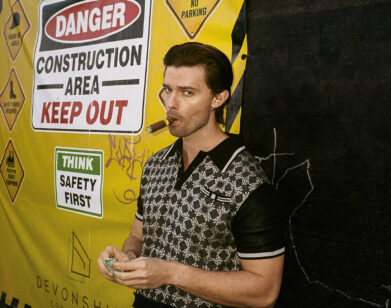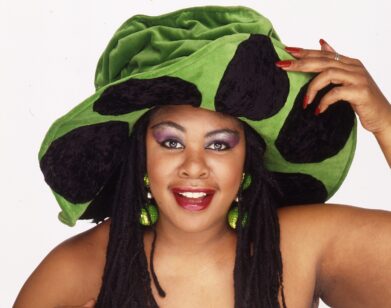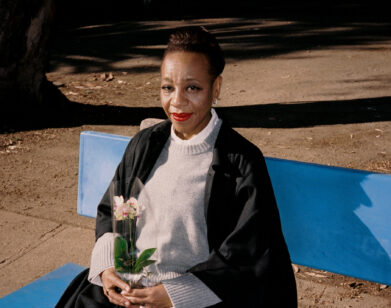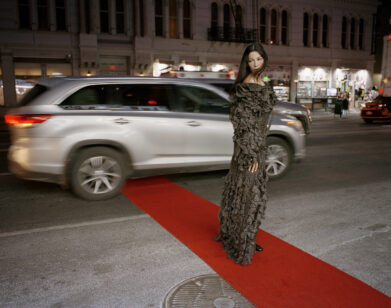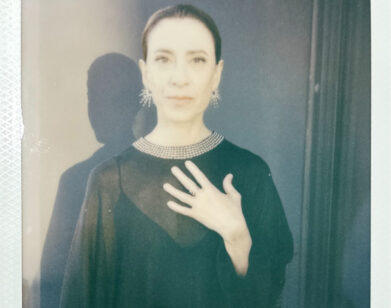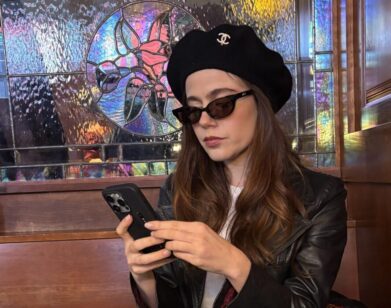Brock Enright: Good Times Role
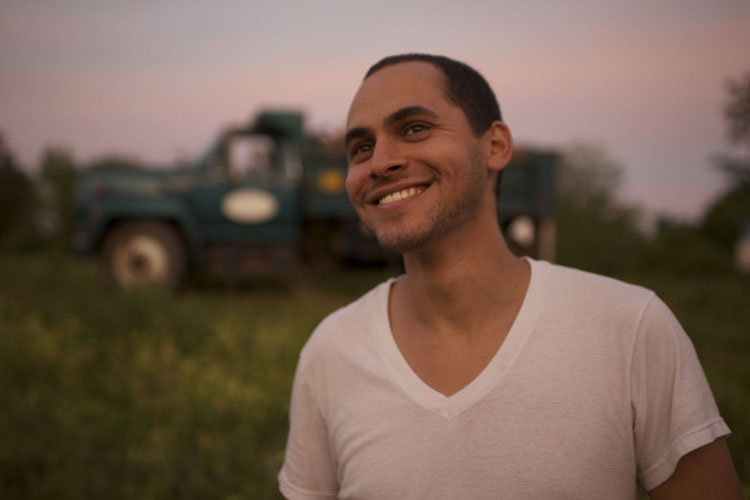
Trailer for Brock Enright: Good Times Will Never Be The Same
Brock Enright: Good Times Will Never Be The Same is a laid-back documentary about a decidedly more aggressive subject: the process of mixed media artist Brock Enright. The enfant terrible first courted controversy in 2002 with VIDEOGAMES Adventure Services, a project that consisted of “designer kidnappings” that Enright and a gang of toughies staged for victims who were willing to pay the price-both in dollars and humiliation. A reporter from the London Times chronicled the harrowing experience.
Jody Lee Lipes’ directed the documentary, which records the lead up to Enright’s 2007 solo show at New York’s Perry Rubenstein Gallery. To make his scattershot sculpture and video , anarchy-inspired found-objects and scenes of Vaudevillian horror, Enright traveled with his then-girlfriend (now wife) artist Kristin Deirup to her family home in Mendocino, California. The resulting journey is rife with creative and inter-personal frustration. In short, the film captures the archetypal conflicts that arise when a mad scientist must face a world that doesn’t see it quite his way. Enright’s behavior—sly manipulation, fits of hypnotic rage, and a particularly memorable semi-public defecation—is at best shocking and elsewhere despicable. But in the hands of filmmaker Jody Lee Lipes, Enright is also a tender character, one that inspires a surprising empathy in the audience. Indeed, Lipes turns what could have been a sensationalized satire about contemporary art megalomania into a delicate portrait of an enigmatic creator. The film premiered at the 2009 SXSW Film Festival, and this week it’s a part of BAM CinemaFEST. Both filmmaker and subject sat down with Interview to discuss their predestined connection and complicated collaboration.
LENA DUNHAM: I wanted to ask about how this collaboration came to be. Brock, it seems like you’d have to know someone pretty intimately to allow this.
BROCK ENRIGHT: Want me to start way back?
JODY LEE LIPES: Yeah, way back.
BE: I met a girl at some party and we started hanging out and apparently, she’d just broken up with Jody. And then she and I started dating, and I didn’t know him but I always heard about how much he hated me, but I had always heard so many good things about him. I said, “He doesn’t even know me, why does he hate me?” But I understood. He liked this girl and they broke up and now I’m with her, so I’m the enemy. But I always wanted to know him. I had a party at my place and I wanted him to come, and he came. And we talked. There’s something about Jody, something I can’t explain. This connection or trust I’ve always felt for him. Later on I started working on certain projects that I wanted to have filmed, to have his Jody-ness on. The thing is, the way he shoots is not abrasive. He really blends in, and he also shoots it well. He has an eye. I knew I was asking questions, and the way he would shoot would answer some of those questions.
Jody Lee Lipes
JLL: There was a brief period where we talked about writing a screenplay together. I wanted the film to be about Brock’s childhood and his life, which is a story that has circulated weirdly through Hollywood for a while. The project never got too far, but then I started thinking maybe I should just tell the story of his life through documentary. So when he got offered this show [at Perry Rubenstein], I thought, I could use the story of this one show, and use it as a sort of jumping off point for telling Brock’s whole story.”
LD: So you were initially thinking about this as a documentary about Brock as a person and less about this specific exhibition.
JLL: Right. But then I had a few meetings with the gallery and it just got bigger and bigger, and there was a road trip and it became a bigger thing. I realized it could stand on its own.
LD: So Brock, you were clearly comfortable with Jody and comfortable being documented, but there are other people who feature prominently in the film who seem more hesitant, particularly your wife, artist Kristin Deirup. Did it take any convincing on your part to get her to appear?
BE: Well, she’s really supportive of what I do. That’s our role, we support each other’s endeavors. But my endeavors tend to exhaust her.
JLL: I think she was also really concerned with being the bad guy, being the uptight guy. She didn’t want to be the nagging girlfriend. And I was worried about that too while I was shooting but it turns out that very few people have that reaction.
BE: She always says, “I’ve never been this controlling about anyone in my whole life.” I say sometimes that she’s too controlling, but she’s really not. I am abnormally out of control.
LD: You’re a handful.
BE: Yeah, and I’m aware of that now. I’m learning that more and more and I’m trying to calm down.
JLL: There was one shot in the film that is a piece of a two-and-a-half-hour argument, and at some point in that fight Kirsten turned to me and said, “Who do you think is right?” I said, “It’s not really my place to say.” And Brock said, “Obviously, as the documentarian, you’re not supposed to get involved, but we want you to because you have a perspective on what we’re talking about that no one else does, that we don’t have.” And I said, “OK, I’ll tell you what I think if you never ask me to turn the camera off again,” which Kirsten had done once or twice up to that point. We talked about it and she never asked me to turn the camera off again.
LD: Who did you think was right?
JLL: I thought that they were both right.
LD: That’s a trick! Brock, what’s it like to watch yourself on video? How do you see your own behavior in the film?
BE: It changes all the time, but I’m often humiliated. I’m in a position to throw tomatoes at. I am the fool and that’s uncomfortable. I just hope that people understand the fight that I was dealing with. I feel like everyone can relate to it in some way or another. I hope people look at it like an animal documentary, like Animal Planet. Like an animal who has gotten really lost.
LD: Jody, your background as a director of photography is so clear in the film. The camerawork is elegant and steady and doesn’t have the jangly, handheld feel of so many documentaries on the festival circuit.
JLL: That might be a trend, that there are more documentaries coming out that are shot in a way that’s higher end. There’s also more narrative work with a documentary feel-even just TV shows like “The Office.” There’s more of a fusion between the two forms, and it doesn’t just come from the dramatic narrative side. It comes from the documentary side too.
LD: There are scenes in the movie where I definitely found myself asking whether there was an aspect of performance, whether it was straight documentary or if Brock was playing to the camera a little bit. It didn’t seem scripted but it didn’t seem quite real either…
BE: When I do certain projects I play with the idea of going into a voodoo ceremony, a Native American dance or some other tribal behavior. I set out looking for the black goat in the woods. I was trying to get the black goat to come to me, so I could be the demon. So there are moments where I’m in character, the artist trying to lure the black goat to him. Whatever that means, whatever the black goat is. Whether it’s the gallery, or an audience, the person sitting near the stage. So I’m always outside of myself. I’m just kind of fucked with this weird perception of what the world is and how I exist in it based on my grandmother.
LD: What about your grandmother?
BE: She would takes pictures of me every single day, thousands and thousands of pictures. So I’m always aware of this thing, through the lens, looking at me.
JLL: People said that to me that there were moments they thought were staged, but Brock is a performance artist, and he’s on a stage. He has an audience. There are cameras on that aren’t mine.
LD: One of the most intense scenes in the film is when Brock essentially takes one of his art dealers, Nicelle Beauchene, hostage in California. Her tires are slashed and she can’t leave and she appears to be genuinely afraid for her well-being. That was such an extreme moment that I wondered if it was real.
JLL: Nicelle really, really cares about Brock. She really cares about his work. She has put a lot of her professional life into Brock. So I think it was good for her to go through that experience. Because when people talk about Brock and his work, that’s one of the things they like to talk about, that kind of challenging, fear-based aspect of it. That she actually got to be victim to that process, it can only help her to communicate to collectors and people in the art world what that’s like.
BE: I see people as participating in something. Nicelle participated in making a black goat come to the stage. Sometimes people watching the documentary can tell when I’m playing around. Sometimes people just see what they want to see. And I think about it my way all the time-but what if I think about it someone else’s way? A lot of the time I just have fun with the conversations, because even if it’s been documented as fact, in interviews or whatever… To me it’s all fiction.
Brock: Enright: Good Times Will Never Be the Same plays Thursday, June 18, at 9:30 PM at BAM Rose Cinemas.

